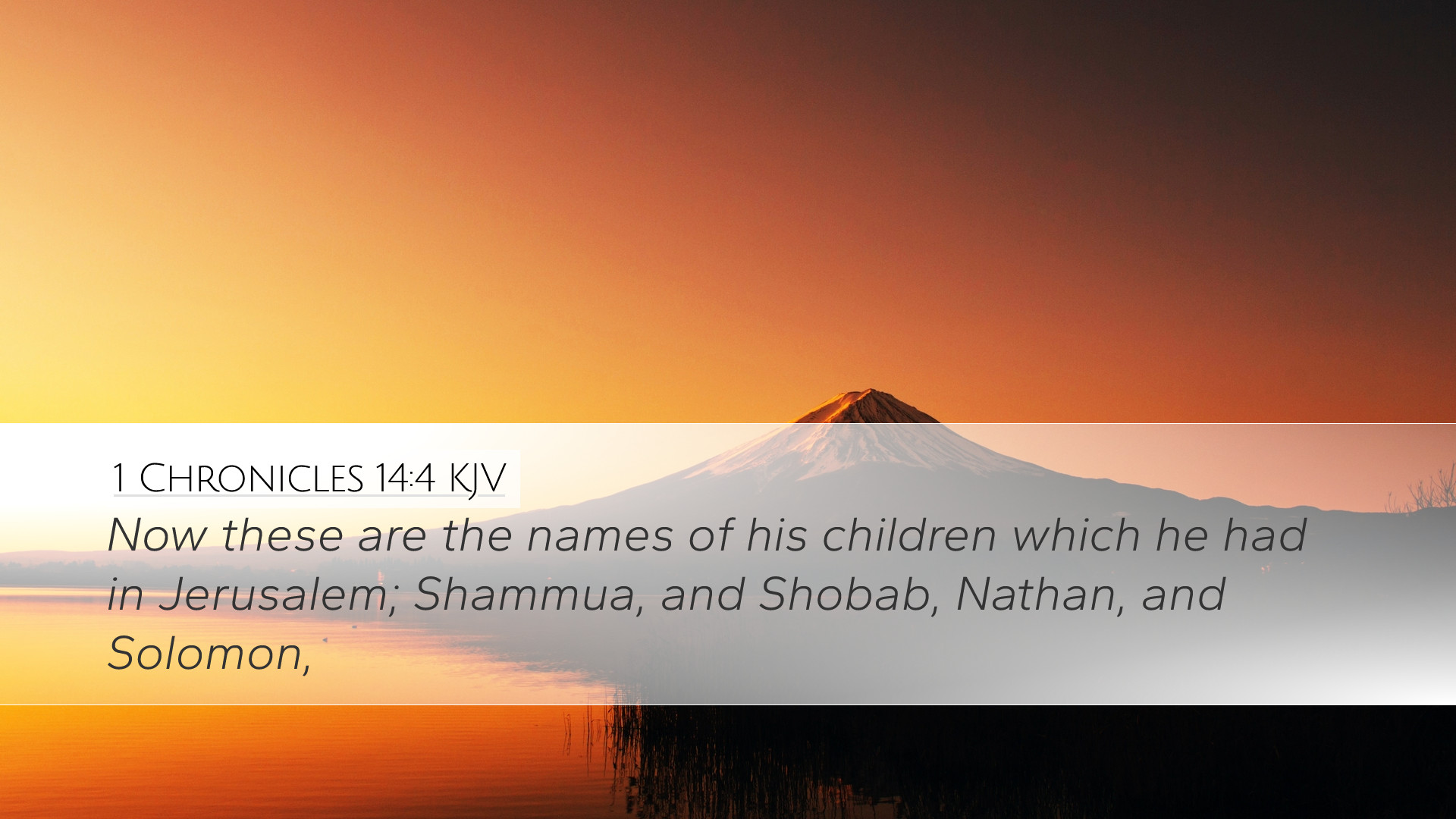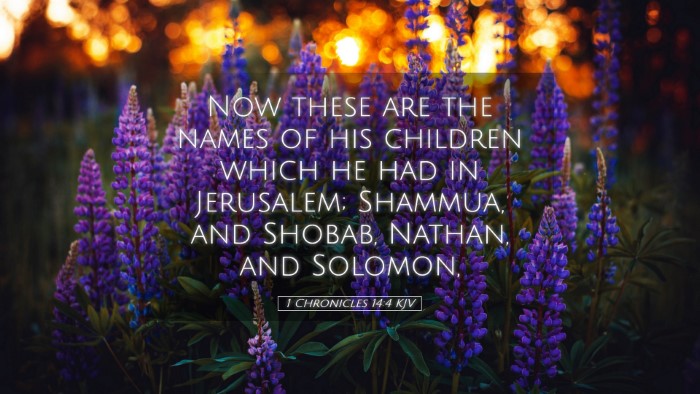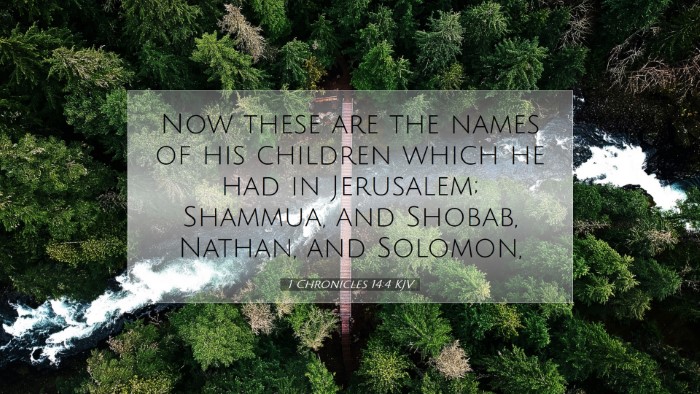Commentary on 1 Chronicles 14:4
Bible Verse: "Now these are the names of the children of David, which were born unto him in Hebron; the firstborn was Amnon, of Ahinoam the Jezreelitess; the second, Daniel, of Abigail the wife of Nabal the Carmelite:" (1 Chronicles 14:4)
Introduction
The genealogy in 1 Chronicles 14:4 provides important insights into David's life and reign. This verse lists the names of his sons born in Hebron, setting the stage for understanding David's family dynamics and the lineage of the future kings of Israel. The chronicler emphasizes David’s kingship, reflecting theologically on God’s covenant with David and the significance of his descendants.
Historical Context
In the historical narrative, David became king in Hebron after the death of Saul. This period was marked by a consolidation of power, and the births of David's sons during this time signify the establishment of his household and royal lineage.
Significance of Hebron
Hebron, being the city where David reigned for seven years, is symbolic of his initial rule. It represents a time of transition for David from a fugitive to a king, underscoring God's providence in elevating him to the monarchy.
Commentary Insights
-
Matthew Henry:
Henry notes that the mention of David’s sons in this context serves to affirm both God's promise to David and the blessings of a fruitful lineage. The births of the princely offspring were not merely personal blessings but also pivotal for the nation of Israel, as they were chosen to carry on the Davidic line, which ultimately leads to the Messiah.
-
Albert Barnes:
Barnes emphasizes the order of the names and their significance. Amnon, as the firstborn, represents primogeniture and the expectations placed upon him. His mention highlights the importance of rightful succession in biblical times—an essential theme as it relates to leadership and the challenges faced by David's family.
-
Adam Clarke:
Clarke provides a thorough examination of the names listed, shedding light on their meanings and the mothers of these children. He points out that each wife of David represents different aspects of life and culture during his reign. The inclusion of these details illustrates the complexity of David’s relationships and the multifaceted nature of his kingship.
Theological Implications
This genealogical account is vital for interpreting the biblical narrative of David not merely as a historical figure but as a central character in God's redemptive plan. David’s lineage is critical in understanding the fulfillment of the messianic prophecy in Jesus Christ, who is called the “Son of David.”
God's Covenant with David
The insight into David's family reflects God's covenantal promise to him—an assurance that his lineage would endure. This theme resonates throughout Scripture, foreshadowing God's faithfulness in keeping his promises. It encourages believers to trust in God’s eternal plan through generations.
Practical Applications
For pastors, students, and theologians, this verse and its commentary can serve as a reminder of the importance of legacy, both personally and corporately. It invites believers to examine their stewardship not only of their own lives but also of those who come after them.
Lessons on Leadership
- Understanding Responsibilities: As seen in the life of David, leadership comes with great expectations, particularly concerning those under our care.
- Value of Family: This passage reinforces the critical role of family in leadership, illustrating how one's personal life can reflect on public duties.
- Legacy Matters: Recognizing the importance of legacy encourages intentionality in mentoring the next generation.
Conclusion
1 Chronicles 14:4 serves not only as a historical record but also as a theological focal point that captures the essence of God’s faithfulness through the lineage of David. The insights from various public domain commentaries deepen our understanding of this genealogy, showing how it is intricately woven into the greater narrative of Scripture. Christians today are encouraged to reflect on their own legacy and the impact of their lives in light of God’s profound and continuous redemptive work.


